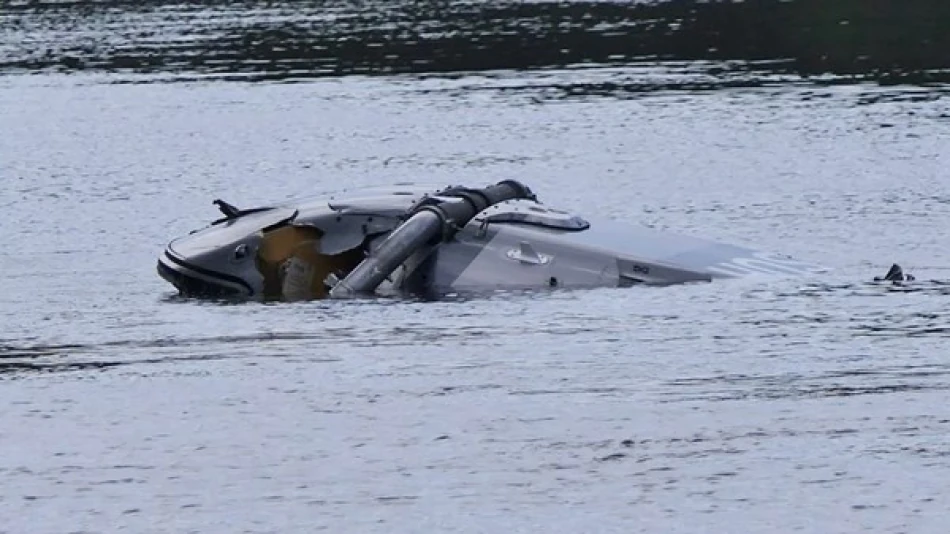
Passenger Plane Crashes into German River, Search and Rescue Efforts Underway
German Military Helicopter Crashes in Saxon River, Pilot Missing as Recovery Efforts Battle Fuel Spill
A military helicopter disappeared over eastern Germany on Tuesday morning, with debris later discovered in the Mulde River near Grimma, Saxony. While no casualties have been confirmed, German tabloid Bild reports that the German military has lost contact with both the aircraft and its pilot, raising concerns about a potential fatality in what appears to be the latest aviation incident involving Germany's aging military fleet.
Timeline of the Incident
Aviation authorities lost contact with the helicopter between 10:00 and 10:30 AM on Tuesday, according to a spokesperson for the Leipzig district fire brigade union. The aircraft's fate remained unknown for nearly two hours until kayakers discovered wreckage in the Mulde River around noon.
The discovery has triggered a complex recovery operation, with approximately 50 emergency personnel deployed to the crash site. However, their primary focus has shifted from immediate rescue to environmental containment, as large quantities of aviation kerosene have leaked into the waterway.
Environmental and Logistical Challenges
Fuel Contamination Takes Priority
The crash site presents significant operational challenges that may delay the recovery process and investigation. Emergency responders are prioritizing the containment of aviation fuel before attempting to retrieve the wreckage, which lies in the middle of the river in a difficult-to-access location.
This approach reflects standard emergency protocols for aviation accidents near water sources, where fuel contamination can cause long-lasting environmental damage to aquatic ecosystems and potentially affect downstream water supplies.
Germany's Military Aviation Concerns
Another Blow to Bundeswehr Readiness
If confirmed as a military aircraft, this incident would add to growing concerns about the operational readiness of Germany's armed forces. The Bundeswehr has faced persistent issues with equipment availability and maintenance, particularly affecting its helicopter fleet used for training, transport, and reconnaissance missions.
Germany's military aviation has experienced several high-profile incidents in recent years, contributing to debates about defense spending and equipment modernization. The country has committed to increasing its defense budget to meet NATO's 2% GDP target, with aircraft replacement and maintenance among the priority areas for investment.
Official Response and Investigation
The German Defense Ministry has not yet issued any official statement regarding the incident, maintaining silence even as media reports suggest military involvement. This cautious approach is typical during the early stages of aviation investigations, where premature statements can compromise fact-finding efforts.
The lack of immediate casualty reports provides some hope, though the discovery of debris rather than an intact aircraft suggests a serious incident. German aviation safety authorities will likely launch a comprehensive investigation to determine the cause, examining factors including weather conditions, mechanical failure, and pilot error.
Broader Implications for Military Operations
Beyond the immediate human and environmental concerns, this incident highlights the ongoing challenges facing European military aviation. As Germany increases its defense commitments amid regional security concerns, maintaining a reliable and safe aircraft fleet becomes increasingly critical for both training operations and potential deployment scenarios.
Most Viewed News

 Layla Al Mansoori
Layla Al Mansoori






